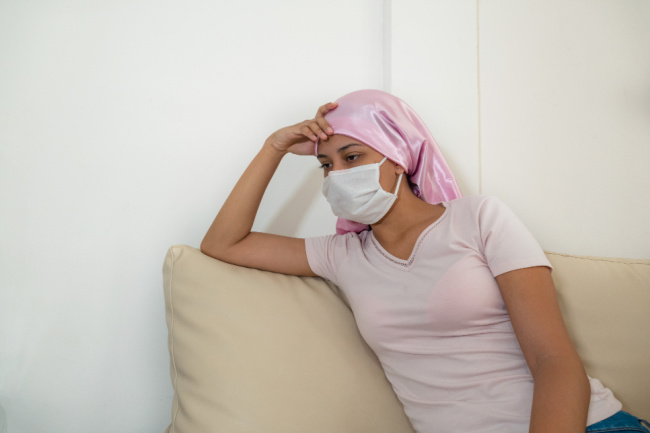
How does having/recovering from COVID-19 affect female sexual health?

Having COVID-19 can greatly influence sexuality.
Many people who have recovered from the virus still feel its effects months later. This is called “post COVID-19 syndrome” or “long-COVID.” (People who have these effects might be called “COVID long-haulers.”)
Two of the most common issues facing people with long-COVID are fatigue and breathlessness. Some people just feel too exhausted for sexual activity, or they might become out of breath during sex. Chest, muscle, and joint pain may occur as well.
Experts believe stress and anxiety can play a large role in sexual difficulties, too. The COVID-19 pandemic has been filled with challenges. People may be coping with illness in themselves or in loved ones. They may be grieving the loss of someone close to them. And adjusting to changes in employment, childcare and other aspects of day-to-day life can be stressful.
When stress builds up, it can affect a person’s sexual desire, confidence, and satisfaction.
Body image may be another concern. Some COVID long-haulers lose some of their hair, which may make them feel less attractive to their partners. (Fortunately, this situation is usually temporary, and hair grows back within a few months).
Researchers have found that women may have pandemic-related sexual problems even if they haven’t had COVID-19. In a study of Polish women, several aspects of sexual function, including sexual desire, sexual arousal, vaginal lubrication, pain, and orgasms all worsened during a period of lockdowns and quarantines.
If you or your partner is coping with sexual problems due to COVID-19, consider the following steps:
- If one of you feels breathless or fatigued during sex, stop and rest. Try activities that take less energy. For example, if vigorous intercourse is difficult, think about other ways to be intimate, such as cuddling, kissing, or oral sex.
- Choose sexual positions that place less pressure on the chest. Doing this can make it easier to breathe.
- Try to maintain healthy habits. Eat a healthy diet and stay as physically active as you can. Take steps to manage your stress, whether that means spending time in quiet meditation, enjoying a conversation with friends over video chat, or laughing during a funny movie.
- If you think stress and anxiety are affecting your sex life, you don’t have to cope alone. Talk the situation over with your partner. You might also consider counseling or sex therapy.
Resources
- British Lung Foundation
“Sex and breathlessness”
(Last reviewed: March 2020)
https://www.blf.org.uk/support-for-you/sex-and-breathlessness/suggestions
- European Society for Sexual Medicine
Spirito, Lorenzo and Giuseppe Celentano
“COVID-19 patients: Sexual Function before and after COVID19 infection. A witness by those who survived.”
(August 24, 2020)
https://www.essm.org/sexual-function-before-and-after-covid19-infection/
- International Journal of Environmental Research and Public Health
Fuchs, Anna, et al.
“The Impact of COVID−19 on Female Sexual Health”
(Full-text. Published: September 30, 2020)
https://www.mdpi.com/1660-4601/17/19/7152



